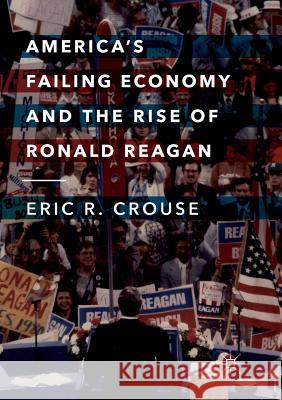America's Failing Economy and the Rise of Ronald Reagan » książka
topmenu
America's Failing Economy and the Rise of Ronald Reagan
ISBN-13: 9783319889573 / Angielski / Miękka / 2019 / 274 str.
Kategorie BISAC:
Wydawca:
Palgrave MacMillan
Język:
Angielski
ISBN-13:
9783319889573
Rok wydania:
2019
Wydanie:
Softcover Repri
Ilość stron:
274
Waga:
0.38 kg
Wymiary:
21.01 x 14.81 x 1.65
Oprawa:
Miękka
Wolumenów:
01
Dodatkowe informacje:
Wydanie ilustrowane











